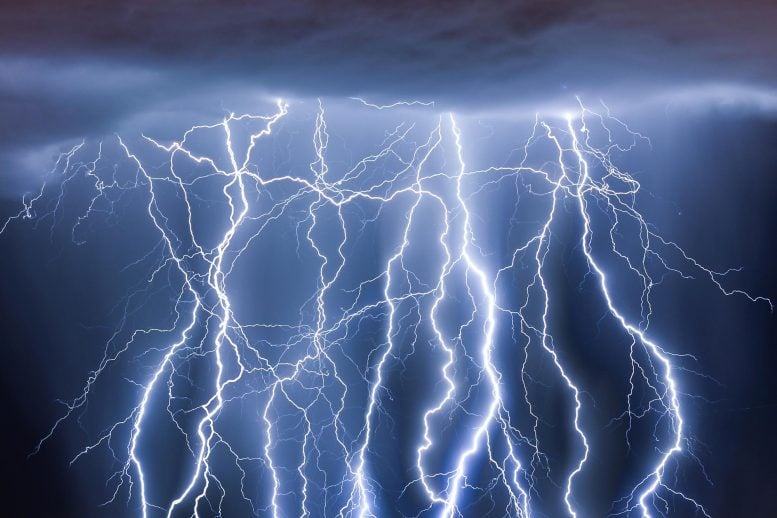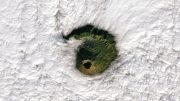
A recent study argues that lightning strikes over time released the phosphorus essential for the formation of biomolecules, laying the groundwork for life on the planet.
Lightning strikes — perhaps a quintillion of them, occurring over a billion years — may have provided sparks of life for the early Earth.
A new study by researchers at Yale and the University of Leeds contends that over time, these bolts from the blue unlocked the phosphorus necessary for the creation of biomolecules that would be the basis of life on the planet.
“This work helps us understand how life may have formed on Earth and how it could still be forming on other, Earth-like planets,” said lead author Benjamin Hess, a graduate student in Yale’s Department of Earth & Planetary Sciences.
In part, it starts with phosphorus, Hess said.
Phosphorus is a key ingredient necessary for the formation of life — but it was not easily accessible on Earth billions of years ago. For the most part, phosphorus was locked tightly inside insoluble minerals on Earth’s surface.
The question for researchers has been: How did Earth’s phosphorus get into a usable form to help create DNA, RNA, and other biomolecules needed for life?
Scientists looked first at meteorites. The idea was that meteorites containing the phosphorus mineral schreibersite — which is soluble in water — crashed on Earth’s surface with enough frequency to create the conditions necessary for biological life.
The drawback to the meteorite theory, however, had to do with frequency. During the period when life is thought to have begun, anywhere from 3.5 to 4.5 billion years ago, the frequency of meteorite collisions on Earth plummeted.
But there was another source of the phosphorus found in schreibersite. According to Hess, schreibersite can also be found in certain glasses — called fulgurites — that form when lightning strikes the ground. The glass contains some of the phosphorus from surface rock, but in soluble form.
Using results from computer modeling, Hess and co-authors Sandra Piazolo and Jason Harvey from the University of Leeds estimated that early Earth saw 1 to 5 billion lightning flashes every year (compared to about 560 million flashes per year today). Of those early flashes, anywhere from 100 million to 1 billion would have struck the ground annually.
That would add up to 0.1 to 1 quintillion strikes — and quite a bit of usable phosphorus — after a billion years.
The lightning strike theory has other advantages as well, the researchers noted. First, the annual number of lightning strikes would have remained constant, unlike the number of meteorite collisions. In addition, lightning strikes were likely to be most prevalent on land masses in tropical regions, providing more concentrated areas of usable phosphorus.
“It makes lightning strikes a significant pathway toward the origin of life,” Hess said.
The new study appears in the journal Nature Communications. Financial support from Yale helped fund the research.
Reference: “Lightning strikes as a major facilitator of prebiotic phosphorus reduction on early Earth” by Benjamin L. Hess, Sandra Piazolo and Jason Harvey, 16 March 2021, Nature Communications.|
DOI: 10.1038/s41467-021-21849-2









Experiments in the 1950s by Stanley Miller, later continued by Carl Sagan and Bishan Khare, showed that complex molecules can be created in the laboratory by subjecting gases present in the atmosphere of the young Earth to artificial lightning.
Just certain things in nature are of the obvious…. I’m sure when the poles slip further and you scienctististists realize we live in a giant bubble of muck(where even Rock is liquid too 2/% humidity…in the nature of planets I would think relatively comes very much into play and applied magnetics… something had to provide electricity.. Tesla knew that… So many finds but never a conclusion….
Anything but acknowledging the creator. Man would rather worship the creation rather than the creator. I am not an accident. By the divine hand was everything created, even the lightening.
In the beginning, God created the heavens and the earth. Gen. 1:1